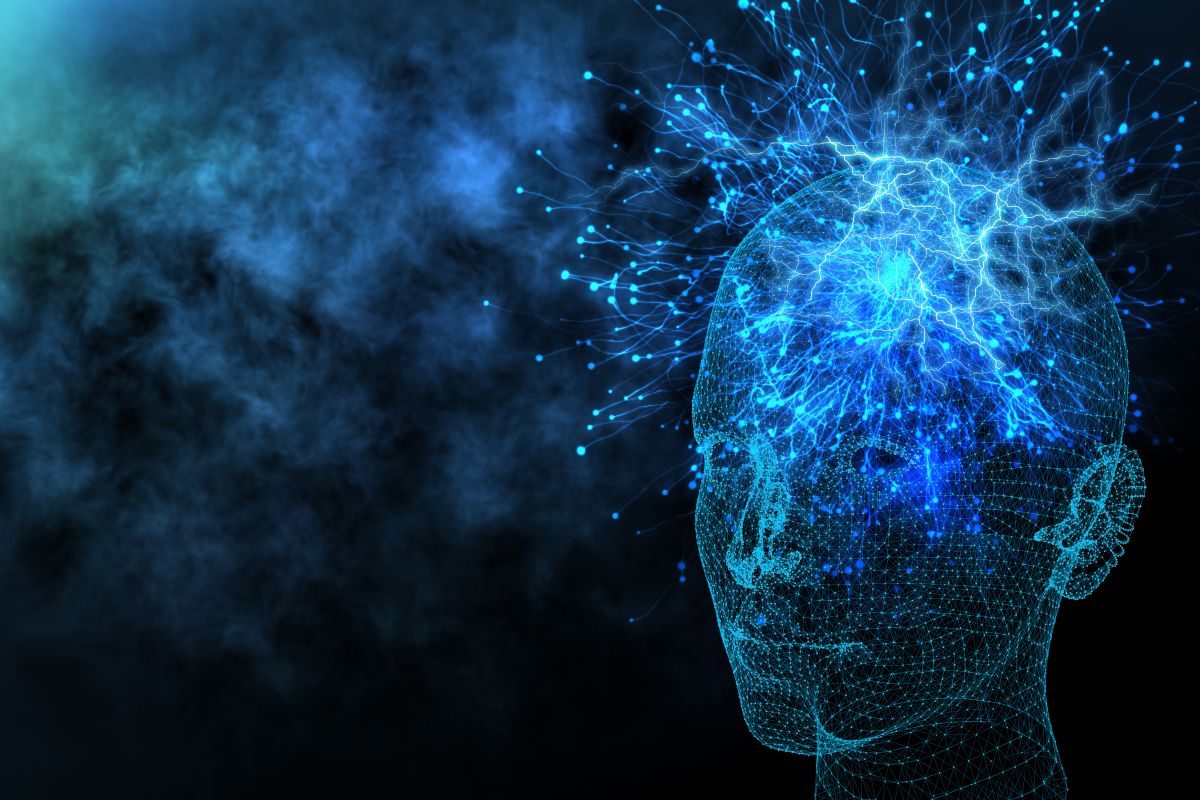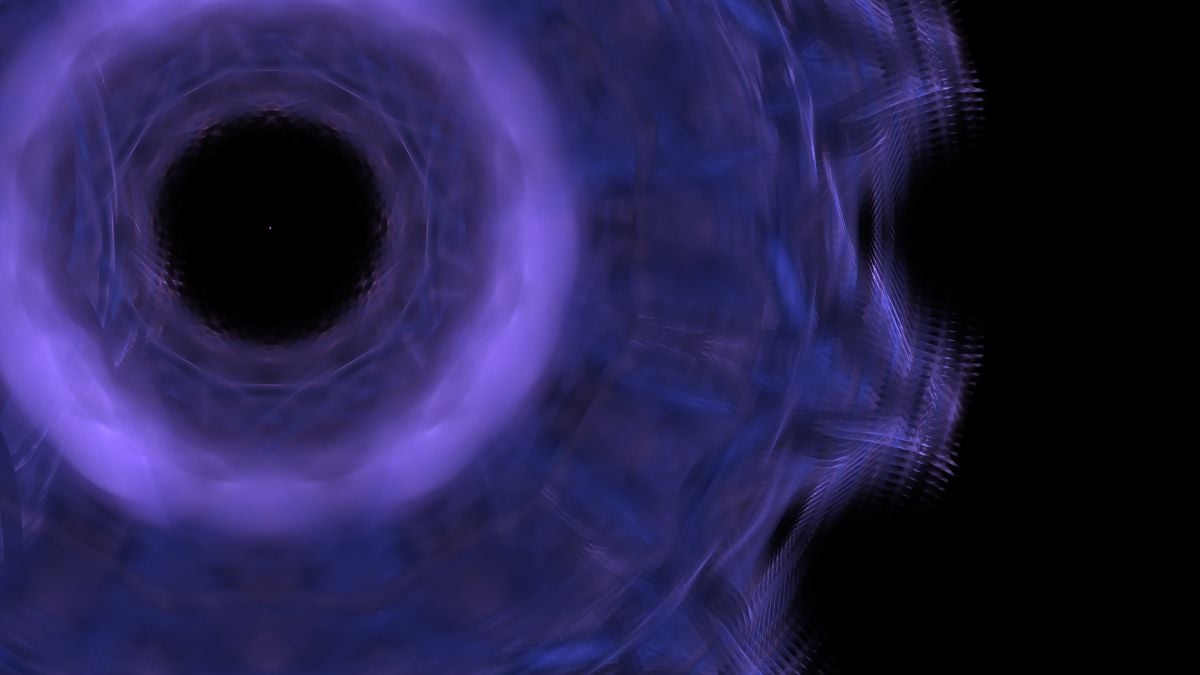Psychedelic journeys can be profound, mystical, and transformative experiences. Afterward, you may feel happier, more inspired, connected, and creative. But in the fast pace of daily life, you may have trouble preserving these feelings for the long term.
Fortunately, you have resources to help prepare for psychedelic journeying and integrate your insights into lasting change. Through preparation, follow-up, and processing, you can realize the full therapeutic potential of psychedelic medicine. And by working with a psychedelic therapist or coach, you’ll have access to a host of tools to guide you.
Here, we’ll explore the similarities and critical differences between psychedelic coaches and therapists so you can determine which one is right for you.
The Difference Between Psychedelic Therapists and Psychedelic Coaches
Some psychedelic integration specialists are therapists and others are coaches. One is not inherently better than the other. Both use compassionate conversation, mindfulness practices, and transformational techniques to facilitate growth, healing, and change.
Additionally, psychedelic therapists, as well as coaches, generally have psychedelic training from reputable organizations like the Multidisciplinary Association for Psychedelic Studies, Johns Hopkins University, or the Integrative Psychiatry Institute. By having a deeper understanding of psychedelic history, research and uses, both therapists and coaches are better equipped to support this healing modality.
While they share many similarities, psychedelic coaches and therapists have a few fundamental differences:
Psychedelic Coach
Psychedelic coaches typically focus on the “betterment of the well.” In other words, they tend to support people whose core goals for working with psychedelics include improving their relationships, careers and general well-being. To do this, psychedelic coaches help clients create clear intentions and plan for the right set and setting to optimize their experience. Coaches may also work closely with clients after their journeys, utilizing a combination of protocols to help people transform ineffable discoveries into actionable real-world change.
Their integration methods can cover a broad range of practices from guided meditations, and breathwork, to journaling, and life planning. Regardless of the method, coaches seek to maximize their psychedelic trips by breaking down self-improvement objectives into small steps in order to form healthy habits that last a lifetime.
Coaches are generally trained and experienced with psychedelics but do not have the same academic and legal credentials as a psychedelic therapist.
Curious about exciting opportunities as a psychedelic practitioner?
Curious about exciting opportunities as a psychedelic
practitioner?
practitioner?
Our FREE E-Book, "Top 3 Emerging Psychedelic Careers," offers a guide to navigating the psychedelic industry.
Plus, you'll receive an exclusive webinar where you can dive deeper and explore these potential career paths.
Psychedelic Therapist
Psychedelic therapists are typically trained and licensed psychotherapists who can diagnose and help people transcend challenging mental illnesses through the power of psychedelic substances. Through psychotherapy combined with psychedelic processing, therapists help patients work through past traumas and habitual thought patterns that contribute to clinical conditions like depression, PTSD, anxiety and addiction.
As therapists, they have traditional clinician education and licensing in fields like transpersonal psychology, psychiatry, or psychotherapy. Diagnosis, treatment planning, and talk therapy may be key parts of their approach.
Clinically trained psychedelic therapists come in many forms. At legal ketamine clinics, hands-on psychedelic therapists help patients mentally prepare for the infusions beforehand, support them through the journey, and sit with them after to talk about the experience. In other practices, psychedelic clinicians focus solely on supporting the integration process after patients have their own psychedelic experiences. Integration programs with licensed therapists can last from days to weeks to several months.
Why work with a Psychedelic Therapist?
A 2016 study conducted by researchers Michael Mithoefer, MD and Charles Grob, MD, suggested that psychedelics could revolutionize the current psychopharmacology model for mental health treatment by changing your brain.
After just one journey, psychedelics transport you to altered states of consciousness that can change your brain’s wiring, creating new neural connections and repairing old ones. This mechanism of action can disrupt years of negative thought patterns or habits to help you recognize areas of improvement in your life. But the immediate relief that psychedelics provide requires a concerted effort to lock in long-term benefits.
Psychedelic integration therapists can work with you to help you examine and process insights so you can heal.
Curious about exciting opportunities as a psychedelic practitioner?
Curious about exciting opportunities as a psychedelic
practitioner?
practitioner?
Our FREE E-Book, "Top 3 Emerging Psychedelic Careers," offers a guide to navigating the psychedelic industry.
Plus, you'll receive an exclusive webinar where you can dive deeper and explore these potential career paths.
What is Psychedelic-Assisted Therapy?
Psychedelic-assisted therapy involves working with a licensed therapist to process your psychedelic experience and alleviate suffering from mental illness.
These therapy sessions may be part of a more extensive psychotherapy process or a short-term visit to integrate a meaningful experience. A clinician cannot administer most psychedelic drugs to you (except at legal ketamine clinics and clinical trials) but will work with you before and after the experience.
Unlike a coach, a therapist has higher education degrees as well as clinical and psychedelic training. These degrees can include a Ph.D., PsyD., M.S., M.A., LMHC, LICSW, or others. Psychedelic therapists can also recognize and diagnose mental health conditions, including anxiety, treatment-resistant depression, post-traumatic stress disorder, trauma, eating disorders, and more. Therapists must be licensed to practice, and they are held accountable for their actions by a code of ethics and a licensing board.
Through therapy sessions following personal psychedelic use, trained clinicians help you glean insights from your journeys to heal from past trauma, develop healthier coping strategies, and examine unhealthy thought patterns. Often, these therapists use psychedelic integration as a larger part of their therapeutic process, which may involve other kinds of therapy, such as cognitive-behavioral therapy (CBT), somatic therapy, or eye movement desensitization and reprocessing (EMDR).
Who Should Go to Psychedelic Therapy?
If you are in a dark place, struggling with your mental illness, or seeking a clinical diagnosis, psychedelic therapy, rather than coaching, may be the right choice for you. Most therapists receive psychiatry and trauma-informed training to help them understand the best way to guide you through sensitive emotional information and even heavy traumatic experiences.
This training better equips them to help you with all types of psychedelic experiences—including the challenging ones that may raise memories you’d rather not relive. Additionally, psychedelic therapists are trained to deal with extremely rare episodes of psychosis, which can happen for various reasons, including underlying conditions.
How Much Does Psychedelic-Assisted Psychotherapy Cost?
Psychedelic therapists who assist you with preparation and integration typically charge anywhere from $80 – $300 per session. Some accept insurance, while many others do not. For their part, psychedelic therapists who sit with you during the journey, such as ketamine-assisted providers, may charge $500 or more, depending on the clinic. Your therapist may be able to provide a sliding scale of session costs to create a plan that works for both your budget and your goals.
Third Wave Recommended Psychedelic Therapists
Margaret Kirschner
Asheville, North Carolina
Why Third Wave Recommends: Margaret is an addiction recovery therapist specializing in trauma-sensitive yoga. With over 21 years of yoga experience and a certification from the International Association of Yoga Therapists, she shares the principles and practices of body-based therapies with her clients. She incorporates these principles into her mentoring before and after a psychedelic experience.
Alison McQueen
Boulder, Colorado
Why Third Wave Recommends: Alison is a psychedelic therapist specializing in art therapy, somatic trauma work, and integration coaching. She served as the Sub-Investigator and MDMA-Assisted Psychotherapist in Phase 2 of the MAPS-sponsored and FDA-approved study on psychedelics and PTSD. Alison helps her clients integrate experiences with MDMA and ketamine into their lives.
Visit Third Wave’s vetted psychedelic directory for a complete list of psychedelic therapists in the US and worldwide.
What is a Psychedelic Coach?
A psychedelic coach is a professional you hire to reach specific and measurable self-improvement goals while processing a psychedelic trip.
Psychedelic coaches can help at every stage of your experience, from journey guidance and harm reduction strategies to integration support afterward. In addition to helping you harness the transformational power of psychedelics, coaches can also help you create an ideal setting for your trip. This may include help with creating a playlist and identifying items you may need like eye shades and weighted blankets. They may also offer nutritional tips to prepare your body for plant medicine ingestion. After the experience, a coach will help you take the insights from your trip and create actionable steps to integrate the experience and effectuate the changes you desire. Coaches may use several modalities during integration, including meditation, breathwork, yoga, journaling, or somatic release—a safe and supportive touch that helps you release physical tension. Like therapists, coaches may also incorporate modalities like cognitive-behavioral therapy (CBT), somatic therapy, or eye movement desensitization and reprocessing (EMDR).
Techniques used by coaches and therapists definitely have crossover, but there is a key difference. Coaches cannot diagnose or treat mental disorders, nor are they necessarily trained in trauma-informed practice.
Many professional coaches can genuinely hold space for your self-discovery journey. But it’s still important to do your research and ask the right questions to find the person who can best support you.
Questions to Ask Your Psychedelic Coach
- How long have you been coaching?
- What experience do you have with psychedelics?
- How familiar are you with psychedelic facilitator guidelines, such as those developed by Rick Dobin’s MAPS organization, Janis Phelps, and Mark Haden?
- Have you read Human Hallucinogen Guidelines for Safety, developed by Johnson MW and Griffiths RR?
- What coaching training have you received?
- Are you engaged in a community of coaches with peer supervision, and have you received mentorship?
Who Should Work with Psychedelic Coaches?
If your priority is to improve day-to-day life rather than manage a mental health condition, then psychedelic coaching may be the most appropriate option for you. Additionally, you might prefer the coaching model if you’re not a fan of traditional therapy and want action-oriented guidance to make changes. If you prefer an accountability-based system for health and wellness, coaches are likely your best option.
How Much Does Psychedelic Coaching Cost?
The cost of psychedelic coaching can vary based on the experience and background of the coach you choose. When researching coaches, make sure you’re clear on their rates so you’re not surprised along the way.
Is a Psychedelic Therapist or Psychedelic Coach Better?
Neither one is inherently better. Whether a therapist or a coach is right for you is ultimately a personal decision. Consider these questions when deciding on the best person to help integrate your psychedelic experience.
1. What are Your Intentions?
Your intention in taking psychedelics matters. Are you dealing with a mental illness like depression, or are you seeking to grow your spiritual awareness? Are you looking to overcome trauma or increase your connection and creativity?
Your intention will enormously guide the decision because therapists receive training to deal with mental health conditions while coaches do not. However, if you’re seeking a mystical experience to broaden your consciousness and find areas of improvement in your life, a coach can help you break those goals down and create a plan for success.
2. What Psychedelics are You Taking?
Many integration specialists work with specific substances, so the psychedelic you choose can help create a natural filter for your search. Once you determine which psychedelic is most appropriate for your needs, you may be able to find experienced coaches and therapists who have expertise with that substance to help.
Common Psychedelic Medicines
-
MDMA
- MDMA, short for 3,4-methylenedioxymethamphetamine, is a synthetic drug that produces intense feelings of euphoria, empathy, and emotional connection. MDMA is the focus of many studies conducted at MAPS and may positively affect a range of ailments, from post-traumatic stress disorder (PTSD) to social anxiety. MDMA is in Phase 3 clinical trials for PTSD treatment and has been granted “breakthrough therapy” status by the Food and Drug Administration (FDA). This status means we may see full approval and prescriptions by late 2022 or early 2023.
-
Ketamine
- Ketamine is revolutionizing mental health care for people with treatment-resistant depression (TRD) who haven’t found relief from traditional antidepressants. In a 2005 psychedelic research study conducted by the National Institute of Mental Health, 79% of subjects who received ketamine interventions showed improvement in their depressive symptoms in just 110 minutes, compared with those who received a placebo. In 2019, the FDA approved an esketamine nasal spray for depression, and since then, ketamine-assisted psychotherapy clinics have been opening around the country and the world.
-
Psilocybin
- Psilocybin, also known as magic mushrooms, is one of the most commonly used hallucinogens in the US. Psilocybin is one of the “classic psychedelics” considered a Schedule 1 drug under the Controlled Substances Act. Right now, you can find psilocybin clinical research at places like New York’s Mount Sinai Health System and Johns Hopkins Center for Psychedelic and Conscious Research in Maryland. You can also look for psilocybin therapy clinics in the next couple of years.
Oregon, for instance, just legalized the use of psychedelics for therapeutic purposes in 2020, which means psilocybin clinics may open as early as 2022 in the state. Potential uses for psilocybin include treating:
- Psilocybin, also known as magic mushrooms, is one of the most commonly used hallucinogens in the US. Psilocybin is one of the “classic psychedelics” considered a Schedule 1 drug under the Controlled Substances Act. Right now, you can find psilocybin clinical research at places like New York’s Mount Sinai Health System and Johns Hopkins Center for Psychedelic and Conscious Research in Maryland. You can also look for psilocybin therapy clinics in the next couple of years.
-
LSD
- Lysergic acid diethylamide, better known as LSD, can increase happiness, connection, and creativity levels, making it a promising treatment for major depressive disorder among other mental health conditions. A 2019 review of randomized controlled trials of the therapeutic use of LSD in a clinical setting also found improvements in anxiety, depression, and addiction.
Other Types of Psychedelic Therapy
- Ibogaine. A naturally occurring psychoactive compound, ibogaine is particularly good at assisting people in addiction recovery, providing between 60% and 80% of patients with a long-term reduction in withdrawal symptoms.
- Ayahuasca, a tea made from leaves native to the Amazon rainforest, is thought to help combat serotonin deficiency, which may be an underlying cause of addiction disorders, depression, and alcoholism. It may also help with the treatment of PTSD.
- 5-MeO-DMT, better known as DMT, can help reduce depression and anxiety. A 2019 self-reported study conducted by Roland Griffiths, Professor of Psychiatry and Neuroscience at Johns Hopkins, found that recreational use of DMT was associated with improvement of depression and anxiety. Due to sustainability issues, it’s vital to source your 5-Me-O-DMT from a safe, synthetic source.
3. What’s your budget?
For a long-term treatment plan, working with a therapist who accepts insurance is the most cost-effective choice. Even if your psychedelic therapist doesn’t take insurance, they may have a sliding scale of session costs that let you create a plan that works for your budget.
Coaching sessions can be more expensive upfront, without insurance coverage. But for a short-term, deep dive into your psychedelic experience and life goals, this option can be worth the investment.Additionally, coaching may be the only option if you’re not suffering from mental illness, but rather focused on self-improvement.
4. Where are you located?
If in-person meetings are essential to you, your location or ability to travel will affect who you can see. Fortunately, most psychedelic integration specialists can work remotely over Zoom, so you always have options.
How to Find a Psychedelic Therapist or Coach
After considering factors like your goals, budget, mental state, and location, the choice of which provider is most appropriate is your personal decision to make. To help guide your decision, we recommend visiting Third Wave’s directory of psychedelic therapists, all vetted by our team for their credentials and unique offerings. We also have resources to help you choose the best psychedelic coach and therapist from anywhere in the world.
Curious about exciting opportunities as a psychedelic practitioner?
Curious about exciting opportunities as a psychedelic
practitioner?
practitioner?
Our FREE E-Book, "Top 3 Emerging Psychedelic Careers," offers a guide to navigating the psychedelic industry.
Plus, you'll receive an exclusive webinar where you can dive deeper and explore these potential career paths.









